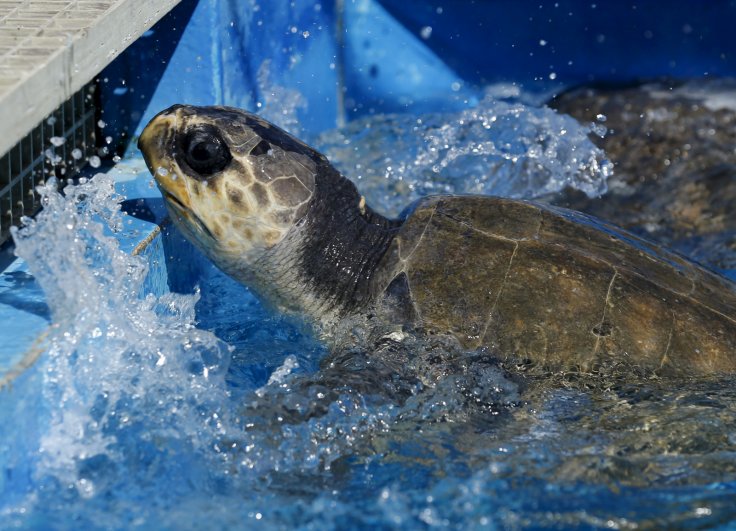Marine animals often mistake plastic bags due to their appearances like jellyfish and fall prey. They may be attracted to scattered pieces of plastic not only because of the way it looks but also the way it smells. Almost 700 species of marine animals including sea turtle and whales are threatened by plastic through ingestion and entanglement.
Scientists from the University of North Carolina at Chapel Hill published a new study on March 9 that floating plastic in the ocean releases a similar odour as food do. This is due to the accumulation of microbes, algae, plants and small animals on the surface of the plastic. These are called biofouled plastic.
Experiment

In the study, they kept 15 loggerhead turtles in an experimental arena for five months that they collected from Bald Head Island, North Carolina. Three different types to airborne odorants were supplied in the experimental arena through a pipe to observe the behaviour of turtles. These airborne odorants consisted smell of clean plastic, turtle food and biofouled plastic.
"Here we report that oceanic-stage loggerhead sea turtles respond to airborne odorants emanating from biofouled plastic in the same way that they respond to food odorants," said researchers.
Results
Results from the study indicated that turtles kept their nostrils out of the water three times longer in response to the odour from food and biofouled plastic. This means sea turtles responded to biofouled plastic odour the same way they respond in case of turtle food.
"These results indicate that sea turtles can detect airborne odorants emanating from biofouled plastic and respond to them in the same way that they respond to food odours. Moreover, these findings are consistent with the hypothesis that odours emanating from biofouled plastic stimulate foraging behaviour in sea turtles and contribute to turtles' attraction to marine plastic debris," researchers wrote in the paper.
Countered previous hypothesis
Researchers also countered the hypothesis that sea turtles visually mistake plastic bags as jellyfish for food. They said that turtles also ingest other plastics that have no resemblance with jellyfish and get entangled. "The 'plastic-jellyfish' hypothesis, therefore, fails to capture the true scope of interactions between turtles and plastic debris or the sensory mechanisms involved."









